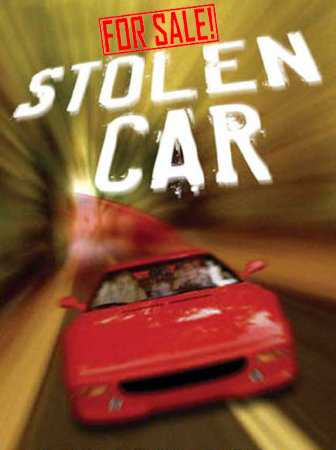Protect yourself from buying a stolen car

Avoid Buying a Stolen Car
There are on average 11,000 vehicles stolen in Ireland every year. The vast majority of those vehicles are recovered within 48 hours. However, on average 2,000 vehicles are never recovered. Some of these vehicles invariably end up in scrap yards or cut up and sold as spare parts. Others, though, are sold on to innocent purchasers usually bearing false identities. The following points will assist the potential customer when responding to a private advert for the sale of a motor vehicle.
Do Your Research:
- Decide on the exact make and model you want.
- Find out locations of VIN numbers on that particular model.
- This 17-digit VIN Number will be stamped into the body of the vehicle.
- Conduct a Vehicle History Check through MyVehicle.ie
- Bring a mechanic or person with some knowledge of cars or motorcycles
Beware of Private Adverts:
- Can the seller be easily identified?
- Do they have a home address?
- Beware 5pm to 6pm adverts.
- Try calling outside these hours
- Beware mobile phone numbers.
- Is the number traceable?
- Always ask for a landline?
- If no landline, ask for a work number.
- Never meet the seller at your home.
- Always meet the seller at his/her home.
- Never meet in a ‘neutral’ place, like a public car park.
- If possible, see the vehicle in daylight.
Seller:
- Is he/she familiar with controls?
- Does the seller have a good knowledge of the car’s service history?
Documentation:
- Are Insurance discs displayed
- Are tax discs displayed? If not, why not? Do not be afraid to ask.
- Does the registration details on the tax/Insurance disc correspond to the registration number of the vehicle? Check for forgeries.
- Is he/she the registered owner? if not, why not?
- Check that the VLC appears genuine. Are all the watermarks in place?
- Does the Chassis number on the registration document correspond to the chassis number stamped on the vehicle?
- Is there documentary evidence to support the service history?
- Can you find a dealer in the service history that will support the car’s history?
Registration plates:
- Do the registration plates look newer than the vehicle?
- Are there too many screw holes in the registration plates?
- Have they been taken off at some stage? If so, ask why.
Windows:
- Dealer’s love advertising. Has original garage stickers been removed?
- Are Registration numbers etched underneath stickers?
- Are correct numbers etched on windows?
Vehicle Identification Number:
- Look for VIN number stamped in the chassis.
- Does it match the registration document?
- Does it show signs of interference?
- Has the VIN plate been removed? If so why?
Check engine number:
- Does it show signs of interference?
- Does the engine number match what is on the vehicle registration document?
Locks and Security:
- Does the car have working security alarm system?
- Do the locks differ?
- Do any of the door locks show signs of damage in surrounding areas?
- How many keys does seller supply?
- Does one key open all doors, and start the vehicle?
Have a checklist ready:
- What kind of advert is it?
- Have you done your research?
- Have you purchased a vehicle history check?
- Is the seller familiar with the vehicle?
- Have you brought a friend or a mechanic?
- Have you checked the logbook for authenticity?
- Have you checked the NCT Certificate?
- Have you checked the NCT Disk?
- Have you checked the Tax Disk?
- Have you checked The Insurance Disk?
- Have you checked the VIN number?
- Have you checked the chassis number?
- Have you checked the door locks?
- Have you checked the petrol lock?
- Have you checked the keys? Are there two?
- Are registration plates new?
FINAL ADVICE:
- Do your due diligence
- Be sure before you buy.
- If it’s stolen, you will lose the vehicle.
- If it’s stolen you will lose the money you paid for it.
- Never be pressured into buying.
- Never pay cash and always get proof of purchase.
- If you suspect that the car is stolen, contact your local Garda Station
- Finally, the ‘Caveat emptor’, let the buyer beware!

Author

Justin Kavanagh
Justin Kavanagh is a recognised leader
in automotive intelligence and vehicle
data supply to the entire motor industry.
He has almost 20 years experience in
building systems from the ground up.
As the Managing Director of Vehicle
Management System, he understands the
need and importance of trustworthy and
reliable vehicle history and advice to
both the trade and the public.
Follow me on LinkedIn